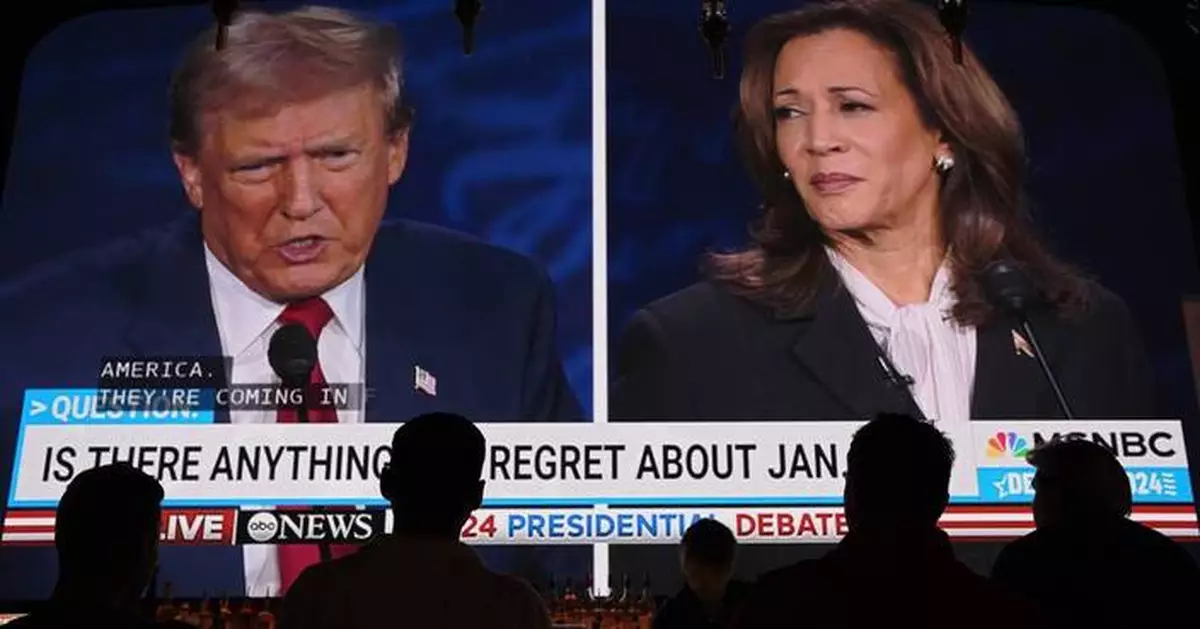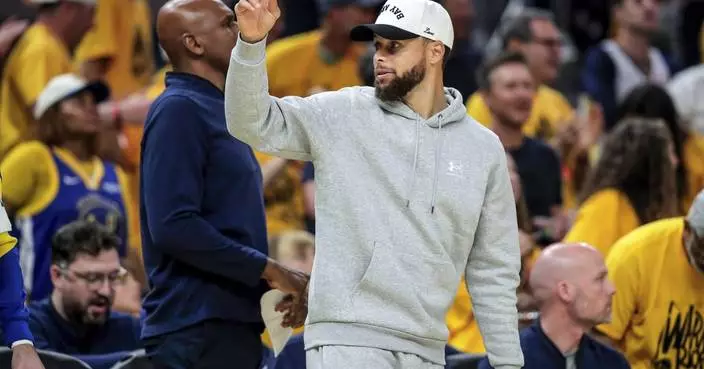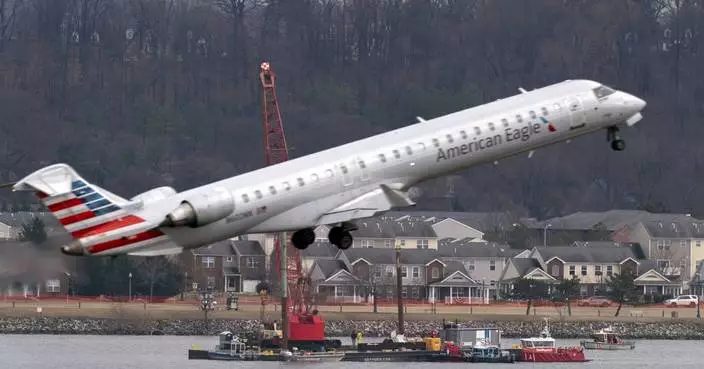ATLANTIC CITY, N.J. (AP) — Just hours after it began, legal betting on the outcome of U.S. Congressional elections has been put on hold by a federal appeals court.
The Court of Appeals for the District of Columbia Circuit issued an order Thursday night temporarily freezing the matter until it can consider and rule on the issue. No timetable was initially given.
The court acted at about 8:30 p.m. Thursday, mere hours after a federal judge cleared the way for the only bets on American elections to be legally sanctioned by a U.S. jurisdiction.
U.S. District Court Judge Jia Cobb permitted New York startup company Kalshi to begin offering what amounts to bets on the outcome of November elections regarding which parties win control of the House and Senate.
The company's markets went live soon afterwards, and Kalshi accepted an unknown amount of bets, which it called “contracts.”
The Thursday night order put a halt to any further such bets. What might happen to those already made was unclear Friday.
Neither Kalshi nor the commission immediately responded to messages seeking comment Friday.
The ruling came after the Commodity Futures Trading Commission appealed Cobb's ruling, warning that allowing election bets, even for a short period of time, risked serious harm from people trying to manipulate the election for financial purposes.
Prices on Kalshi’s so-called predictive contracts varied during the afternoon and early evening hours during which they were live on Thursday. At one point, a bet on the Republicans to win control of the Senate was priced at 76 cents; a $100 bet would pay $129. A bet on the Democrats to win control of the House was priced at 63 cents, with a $100 bet paying out $154.
The elections category under which they had been posted Thursday was missing from the company's website Friday afternoon.
Follow Wayne Parry on X at www.twitter.com/WayneParryAC
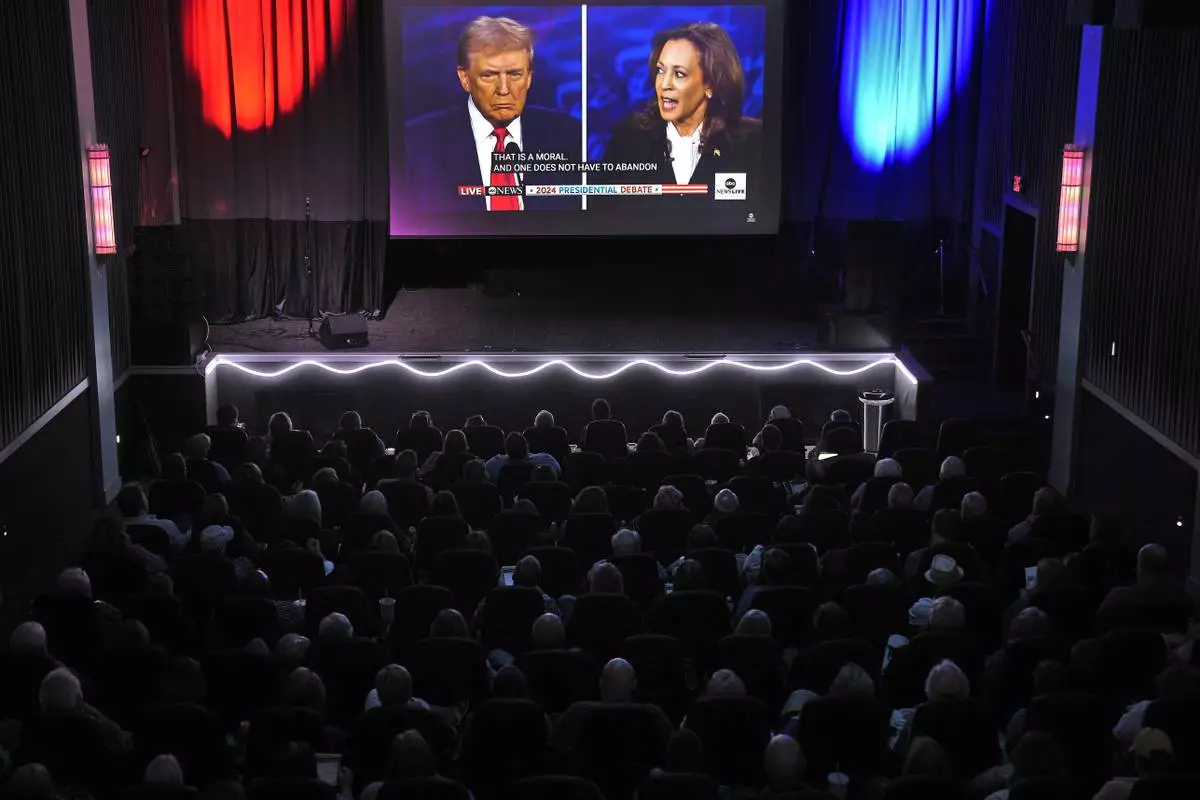
People watch the presidential debate between Republican presidential nominee former President Donald Trump and Democratic presidential nominee Vice President Kamala Harris at a 97-year-old movie theater Tuesday, Sept. 10, 2024, in Shawnee, Kan. (AP Photo/Charlie Riedel)
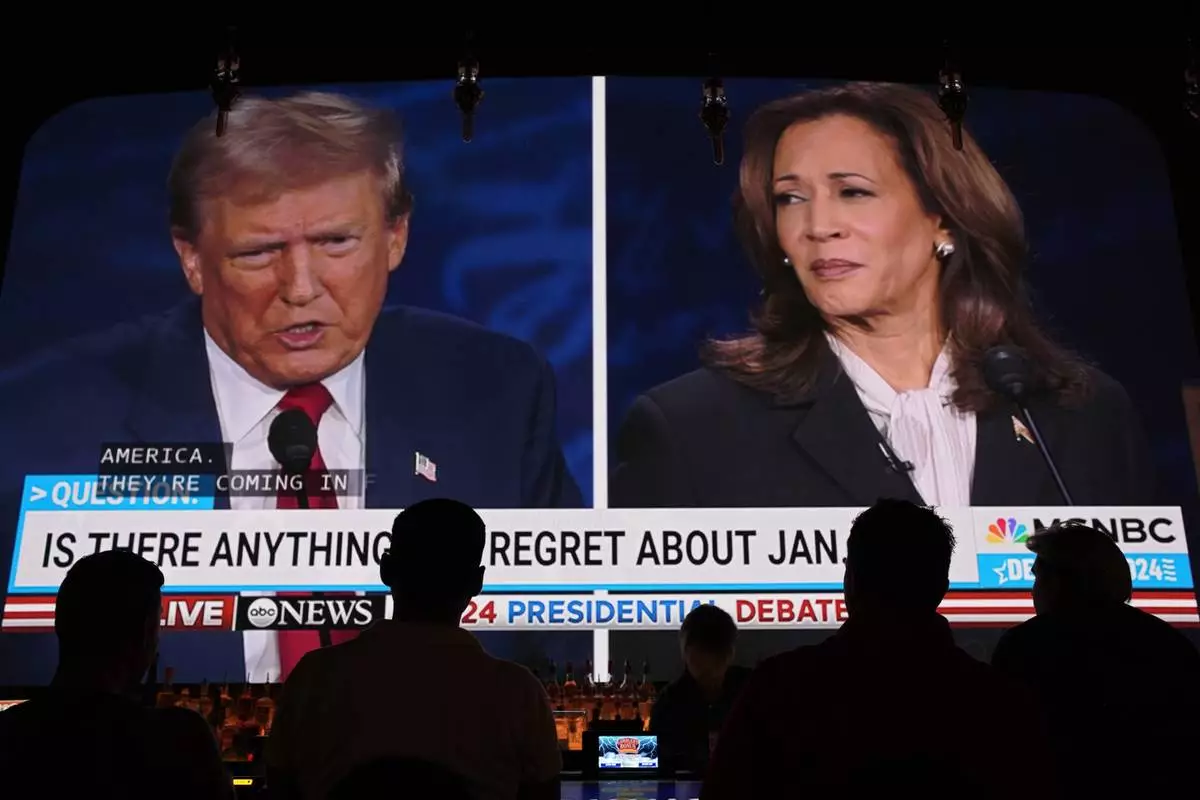
People watch the presidential debate between Republican presidential nominee former President Donald Trump and Democratic presidential nominee Vice President Kamala Harris, Tuesday, Sept. 10, 2024, at the Gipsy Las Vegas in Las Vegas. (AP Photo/John Locher)
ANTALYA, Turkey (AP) — U.S. Secretary of State Marco Rubio and his NATO counterparts meet in Turkey on Thursday to prepare a pivotal summit of alliance leaders next month that will set the course for future European security as America focuses on challenges elsewhere.
The meeting in the Mediterranean coastal city of Antalya comes amid a flurry of negotiations aimed at producing a ceasefire agreement between Russia and Ukraine, including talks in Istanbul that Rubio and President Donald Trump's special envoy Steve Witkoff plan to attend Friday. Rubio and Witkoff are coming to Turkey after accompanying Trump on portions of his trip to Gulf Arab countries.
On the sidelines of the NATO meeting, Ukrainian Foreign Minister Andrii Sybiha met Wednesday with Rubio, who also is having separate talks with new German Foreign Minister Johann Wadephul and Foreign Minister Hakan Fidan of Turkey, whose country is trying to help broker a deal that might end the more than three-year-old war.
Sybiha and Fidan on Wednesday discussed efforts to establish a ceasefire and steps toward securing a lasting peace with Russia, according to the Turkish foreign ministry.
The same day that NATO foreign ministers gather, Ukrainian President Volodymyr Zelenskyy is set to meet with Turkish President Recep Tayyip Erdogan in Ankara. It's an open question whether Trump or Russian President Vladimir Putin will participate Thursday.
Trump teased a possible visit to Istanbul while flying from Saudi Arabia to Qatar on Wednesday, but there was no immediate indication that his travel plans would change.
“He’d like me to be there, and that’s a possibility,” Trump said, referring to Putin. “I don’t know that he would be there if I’m not there. We’re going to find out.”
Zelenskyy has been pushing for direct talks with Russia but only if Putin attends. Putin, who has rebuffed previous such calls, has been coy and has not committed to a meeting.
The Kremlin on Wednesday said Putin’s aide, Vladimir Medinsky, will head the Russian delegation, which also will include Deputy Defense Minister Alexander Fomin, Deputy Foreign Minister Mikhail Galuzin and Igor Kostyukov, chief of the General Staff’s main directorate. The list did not include Putin himself.
Zelenskyy also remains keen on Ukraine joining NATO, which Russia has adamantly rejected and Trump appears to have agreed with. So even with a Ukrainian presence in Antalya, it appeared unlikely there would be any decisions made about Ukraine's future, or lack thereof, in the military alliance.
Of greater concern to the U.S. is money, with the Trump administration saying it wants to hear how European members of NATO and Canada plan to boost their national defense investments to 5% of gross domestic product.
In 2023, as Russia’s full-scale war on Ukraine entered its second year, NATO leaders agreed to spend at least 2% of GDP on national defense budgets. So far, 22 of the 32 member countries have done so.
The leaders will set a new goal at a summit in The Hague on June 25. Trump insists that U.S. allies should commit to spending at least 5% to be ready to defend themselves, but that would require investment at an unprecedented scale.
Trump has cast doubt over whether the U.S. would defend allies that spend too little. The U.S. was projected to have spent 3.38% last year, NATO figures show, the only ally whose spending has dropped over the last decade. Asked last month whether the U.S. would match the 5% target, Rubio said, “Sure. We’re heading there now.”
“Make no mistake, this ministerial is going to be different,” U.S. envoy to NATO Matthew Whitaker said this week, adding that “5% is not just a number, it is a necessity for our security. The alliance is facing significant threats.”
He did not outline those threats. NATO leaders insisted at their summit last year that “Russia remains the most significant and direct threat to Allies’ security,” but some countries are uneasy about Trump reengaging with Putin.
Fidan, the Turkish foreign minister who is hosting the meeting, is expected to express Turkey’s commitment to strengthening NATO and call for the inclusion of NATO allies that aren’t European Union members — such as Turkey — into European security and defense initiatives, according to Turkish officials.
Fidan also would advocate a comprehensive, “360-degree security” approach focusing not only on ending the Russia-Ukraine war but also on stability in the Middle East and regions adjacent to NATO members, the officials said.
Meanwhile, the defense spending plan under consideration appears to be for all allies to aim for 3.5% of GDP on “hard military spending by 2032,” and an extra “1.5% related spending (on) infrastructure, cybersecurity and things like that. Also achievable by 2032,” according to the Dutch government.
While the two figures add up to 5%, factoring in infrastructure and cybersecurity would change the basis on which NATO traditionally calculates defense spending. The seven-year time frame is also short by the alliance’s usual standards.
Whitaker, the U.S. NATO ambassador, appeared this week to confirm the plan, saying it “also includes things like mobility, necessary infrastructure, cybersecurity. It is definitely more than just missiles, tanks and howitzers.”
It's difficult to see how many allies might reach even 3.5% of GDP. The meeting in Turkey may provide more clarity.
Cook reported from Brussels, and Fraser from Ankara, Turkey.
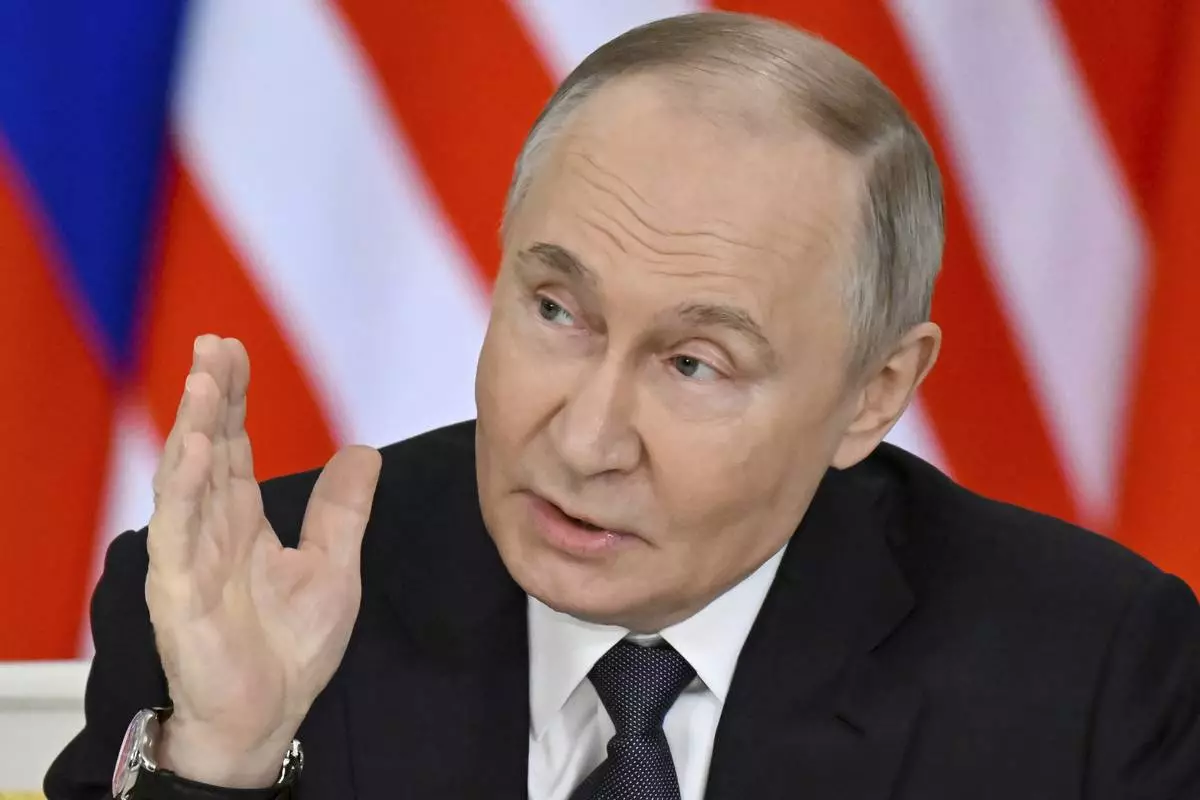
Russian President Vladimir Putin speaks during a joint press statement with Malaysian Prime Minister Anwar Ibrahim at the Kremlin in Moscow, Russia, Wednesday, May 14, 2025. (Alexander Nemenov/Pool Photo via AP)
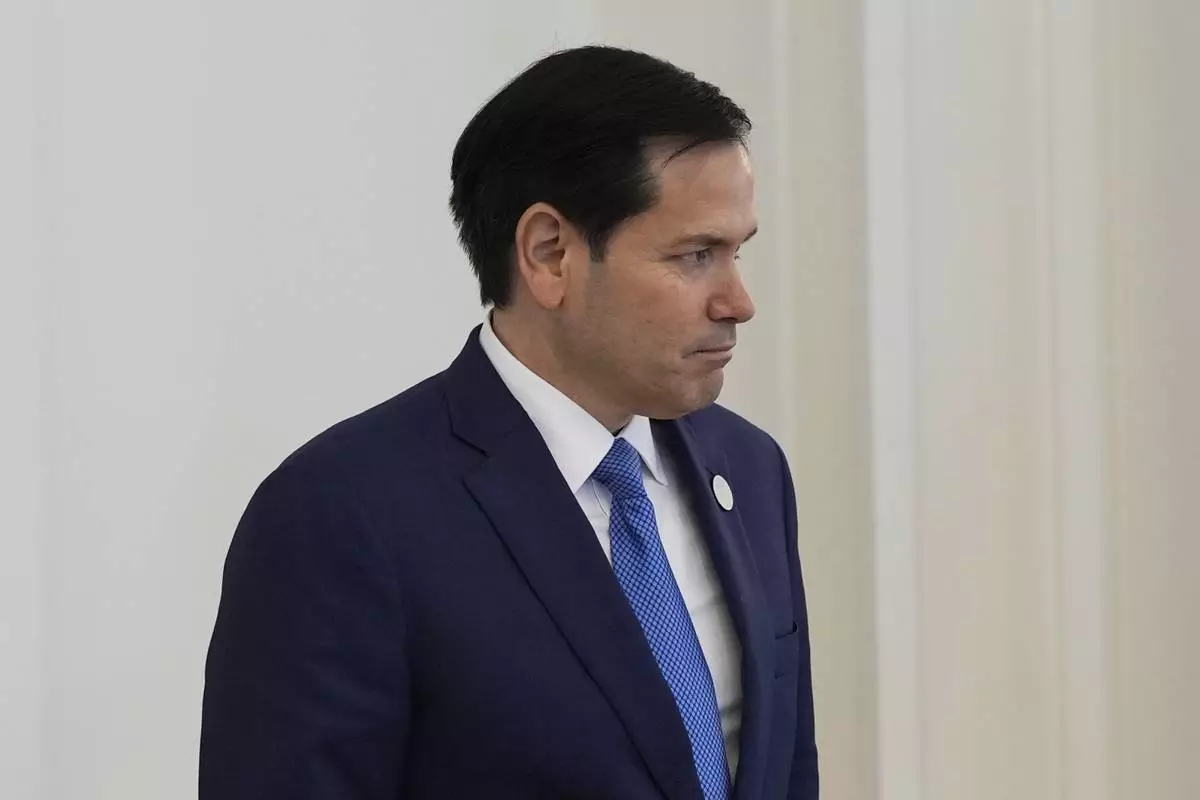
Secretary of State Marco Rubio departs a lunch between President Donald Trump and Qatar's Emir Sheikh Tamim bin Hamad Al Thani at the Amiri Diwan in Doha, Qatar, Wednesday, May 14, 2025. (AP Photo/Alex Brandon)




